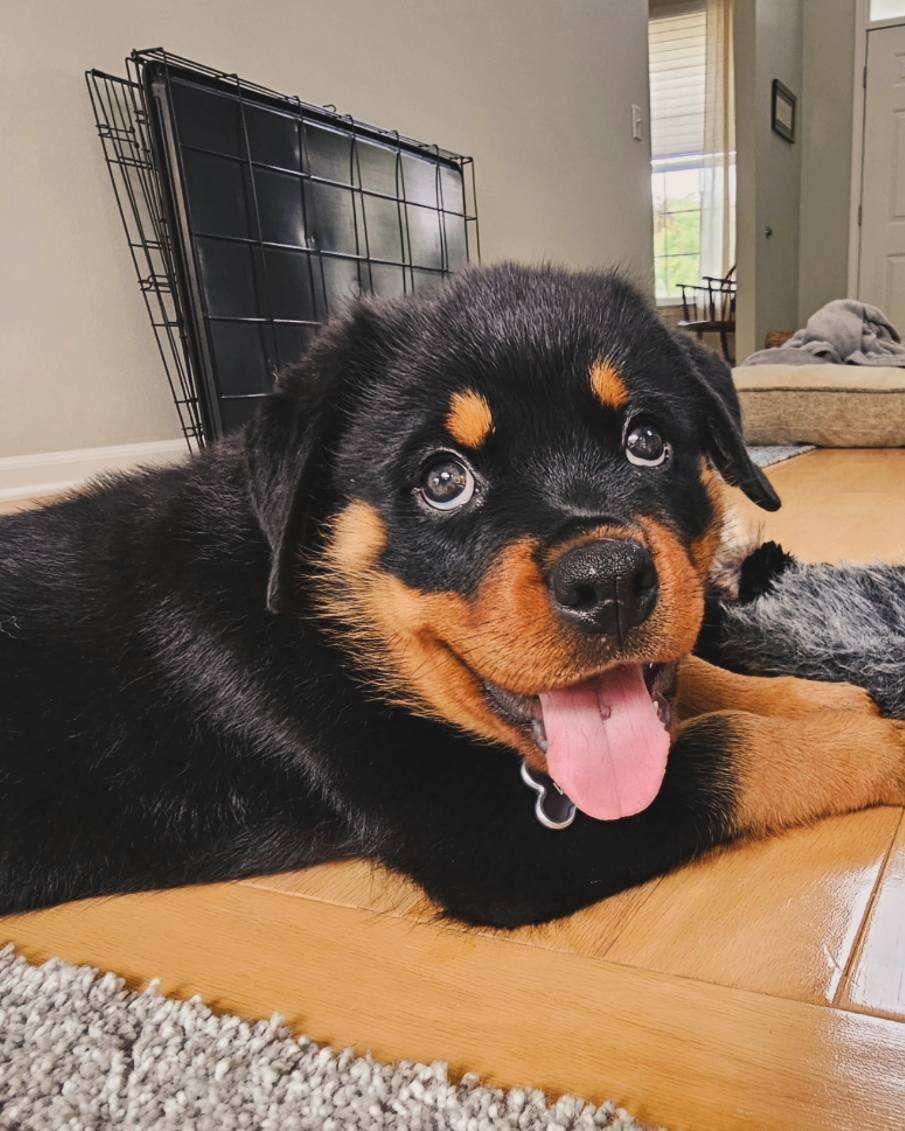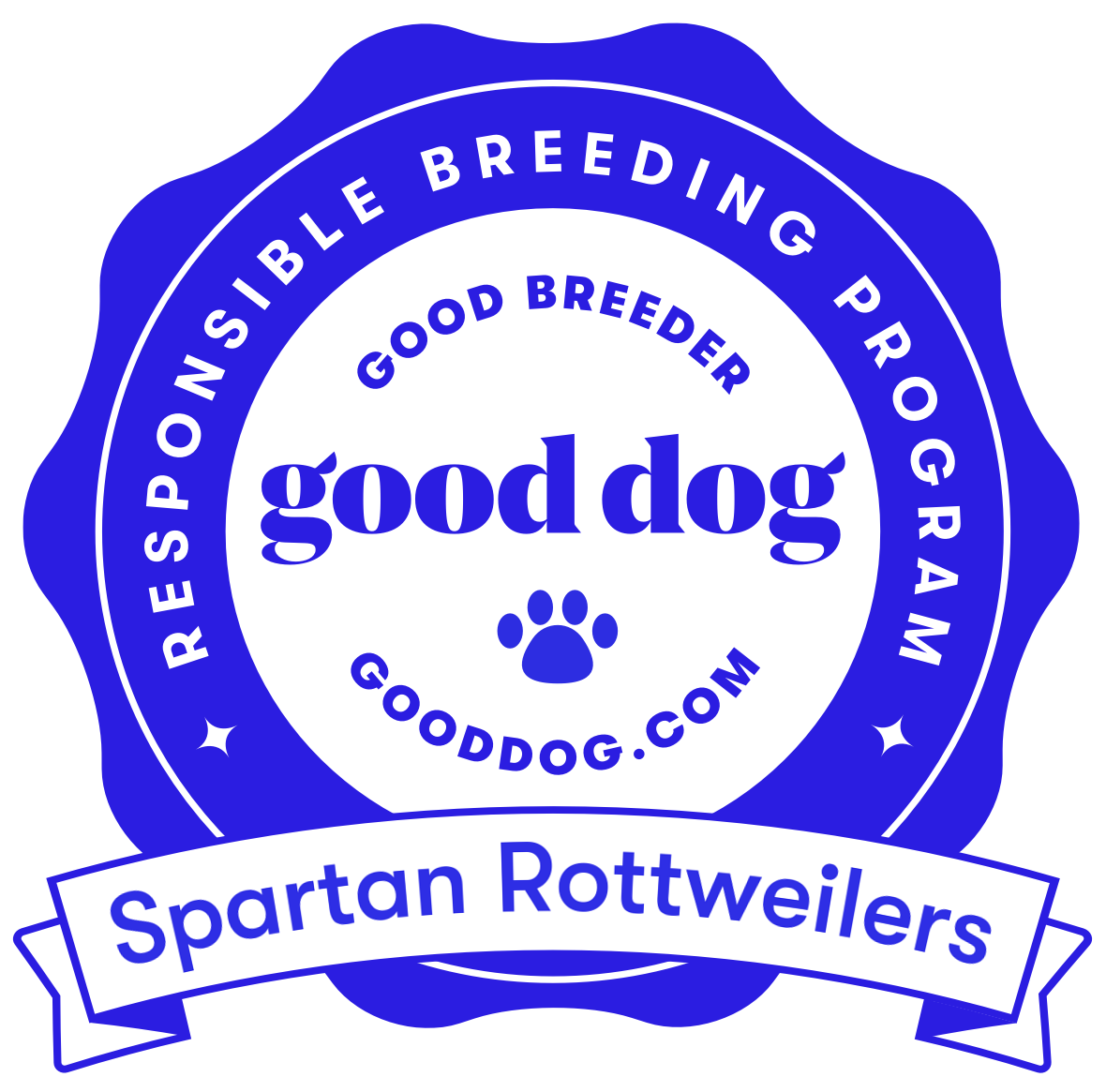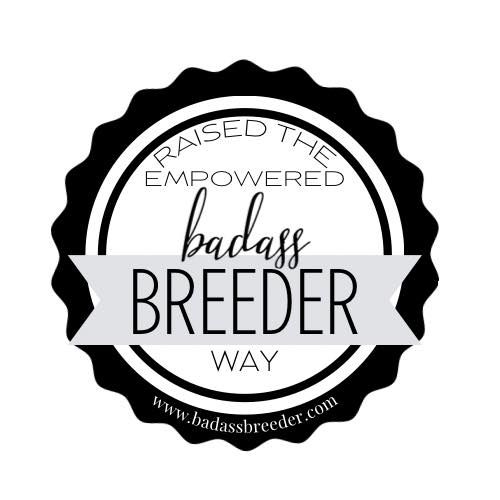🐶 Puppy Go-Home Instructions
Bringing your puppy home is exciting — but it’s also a major change for them. New people, smells, environments, and schedules can be stressful, and that stress can temporarily weaken a puppy’s immune system.
One of the biggest challenges during this time is parasites, especially when dormant eggs become active due to stress.
Even though every Spartan puppy is dewormed on a regular schedule,
it’s still possible for parasites to appear after going home. Here’s why — and how you can help prevent it.
🦠 Why Do Parasites Sometimes Show Up After Pickup?
- Nearly all dogs carry parasites at some point.
- Deworming kills active parasites, but it cannot kill dormant eggs stored in the tissue.
- These eggs can become active during times of stress, immune suppression, pregnancy, or illness.
- Puppies are especially vulnerable because they grow rapidly, are born with lower immunity, and are a preferred host due to their high water content and fast metabolism.
The goal is to minimize stress and support the immune system during the first few weeks home, so those dormant eggs stay dormant.
🏡 Your Go-Home Transition Protocol
1. Keep Things Calm (First 3–7 Days)
Treat your puppy like a newborn:
- Keep the home quiet and relaxed.
- Delay visitors for the first few days.
- Limit handling, new experiences, and busy environments.
- Remove shoes at the door — parvovirus can be tracked in on soles.
2. Let Sleeping Puppies Sleep
Your puppy may sleep a LOT — this is normal!
- Don’t wake a sleeping puppy.
- As long as they wake up playful, eat well, and drink water, they’re doing great.
3. Expect Stress Poop — and Use a Bland Diet
If your puppy has mushy or loose stools, don’t panic. Stress is often the cause.
Feed a bland diet for the first 3 days:
- Boiled hamburger or chicken (or canned chicken)
- White rice
- Optional: plain canned pumpkin (NOT pie filling)
If stools firm up after 3 days, begin slowly adding kibble over 5 days (e.g., 25% kibble + 75% bland, then 50/50, and so on).
💡 Batch cook and freeze your bland diet ahead of time to make this easier.
4. Avoid Treats or Chews (First Week)
- No bones, biscuits, or training treats just yet.
- Let their tummy settle before introducing extras.
5. Add Probiotics After the Transition
Once your puppy is eating regular dog food again, add a probiotic like Purina FortiFlora to support gut health and immune balance.
6. Water Matters
- If your puppy was raised on well water, start them on bottled water for 3 days, then gradually introduce city water to avoid stomach upset.
🚨 When to Call the Vet
Contact your vet if you notice any of the following:
1. Mucus or blood in stool – Try a bland diet for 24 hours. If symptoms persist, ask your vet for a fecal test.
2. Lethargy or refusal to eat – If your puppy won’t play or eat, call your vet.
3. Vomiting and no bowel movement – This may indicate a blockage. Seek emergency care immediately.
4. Liquid diarrhea – Puppies dehydrate quickly. If it doesn’t improve fast, call your vet.
🐾 A calm, thoughtful transition can make all the difference in your puppy’s health and confidence.
Thank you for giving your puppy the care and patience they need as they settle into your home!






